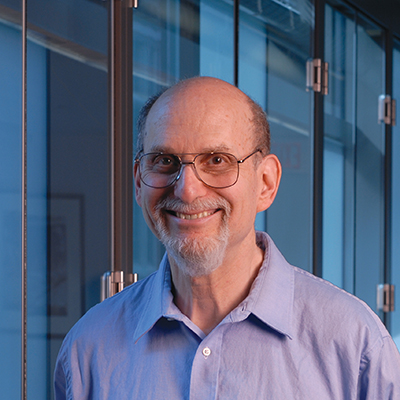Remembrance of Max Mintz


I'm writing about some of my memories of my recently deceased PhD advisor, mentor and friend, Max Mintz. Max's passion was for teaching and he was the greatest teacher I've known. Unable to contain his enthusiasm, he would scream his lectures at high volume even in small classrooms. He always taught to the top of the class. While the less studious might struggle with his classes, the good students would learn more in one of his classes than in years of other classes. He decried and never yielded to what he saw as a trend towards subject matter dilution in academia.
As a young graduate student, I was eager to learn real analysis and modern probability theory. I studied these topics as independent studies with Max. He and I met for 3 hours every Sunday to solve problems in these areas. These are some of my fondest memories. Subsequently, I have been fortunate in my career to work with some of the best quantitative minds in the world but, on the topics that Max taught me, I have always been able to hold my own.
When some graduate students hosted a graduate student Halloween party in the early 90's, I decided to dress as Max who was a typical eccentric professor in the constancy of his garb. I was able to acquire a shirt, pants and bald cap which took me a good part of the way. There was one distinguishing piece of clothing that I wasn't able to replicate: what Max called his yellow slicker. No matter how bad the weather in sometimes cold and rainy Philadelphia, Max walked over a mile to school every morning wearing nothing heavier than his yellow slicker. I didn't believe they had made anything like it for the prior 30 years. I eventually asked Max to borrow his. He asked why and after explaining, agreed to lend it for the price of a photograph. On seeing me at the party, a fellow student of Max's said that her first thought had been "What is Max doing here in a fake beard?". Another woman who was a friend of some of the graduate students but not in the program herself, asked me who I was dressed as. I told her he was my thesis advisor and she wouldn't know him. It turned out that she worked as a clerk near where Max lived and recognized me as a regular in her store. Unfortunately, no copies of the picture are known to have survived past the age of physical photographs.
Max had many pithy sayings now referred to as Maxisms. As an early graduate student who loved taking classes, he would often tell me "Don't let classes get in the way of my education". I eventually realized that he was right: those who know a lot do not learn it from formal study. Another Maxism was "With that and 5 cents, you could buy a cup of coffee". I eventually mentioned that you can't buy a cup of coffee for 5 cents any more at which point he changed the saying to "with that and 5 cents, you can buy a 5 cent cup of coffee".
Max had little patience for those who would forgo mathematical rigor. He often said "it's better to get an approximate answer to the exact problem than an exact answer to an approximate problem". One of his particular pet peeves was the assumption that data have normally distributed errors, which, while justifiable in many situations due to the Central Limit Theorem, can not always be justified. Max frequently hassled seminar speakers over this. At a party at my apartment one evening, Max and many of the graduate students played a game where an unknowing participant would ask a series of questions. The rest of the crowd would answer those questions with "yes" if the last word of the question ended in letters A through M and "no" otherwise. The crowd asked the participant to ask Max "Are the data are normally distributed?" and he was forced to answer "yes" for what was probably the first and last time of his career.
Max often expressed strong views on ethics. He was particularly critical of those who sought money as an aim, including myself and other students who ultimately pursued careers in the financial industry. He was also a news junkie with a deep love for humanity. His standard set of instructions to test takers included "Verbosity to hide ignorance will not be rewarded". While the Soviet Union was breaking up in the early 90's, he elaborated on this with "Don't write a novel on Russian history, as interesting as it is these days".
Max had no ability to adjust his often highly technical language to his audience. On first meeting my 10yo son for lunch a few years ago, Max immediately went into a monologue on Hamiltonian mechanics. My son told me afterwards that he had no idea what Max was talking about.
Thank you for taking the time to read through this much of my experiences with Max. Unfortunately, no quantity of my words can express how deep of an influence Max Mintz had on me. What Max often said of others applies equally to him: "When they made him, they broke the mold."